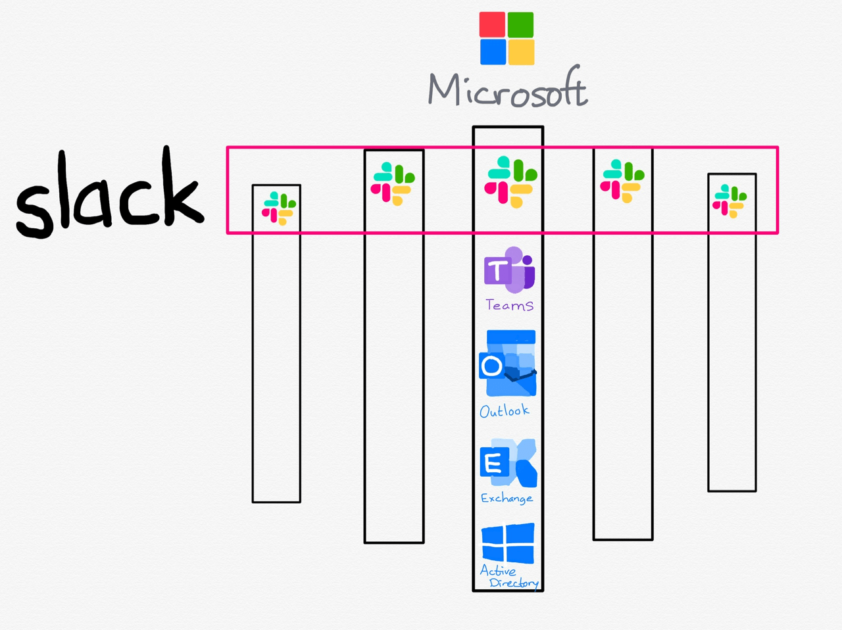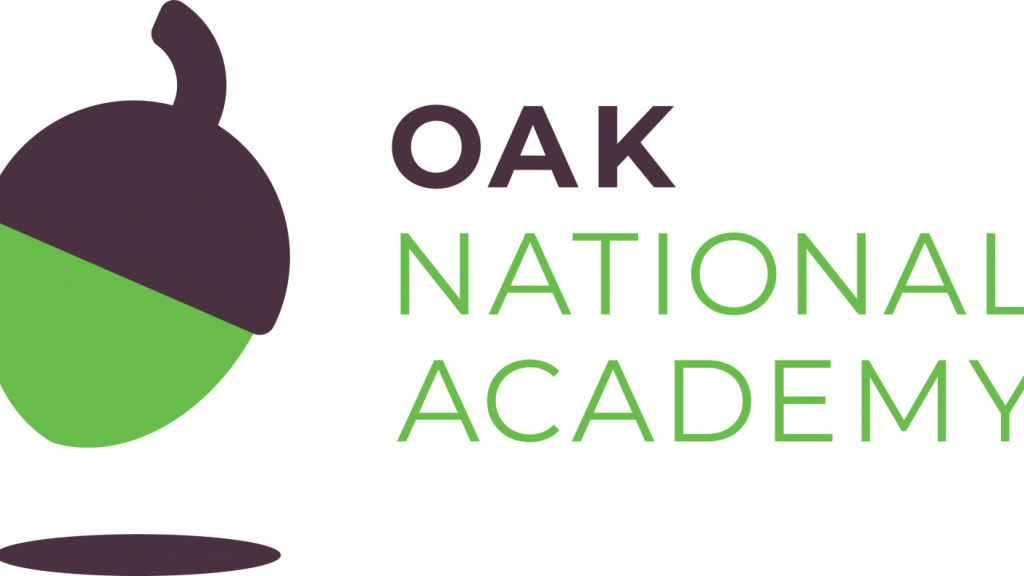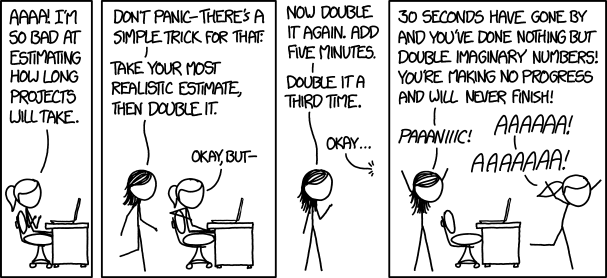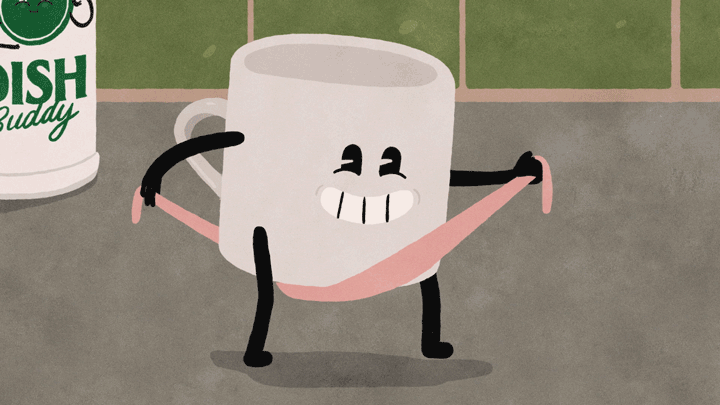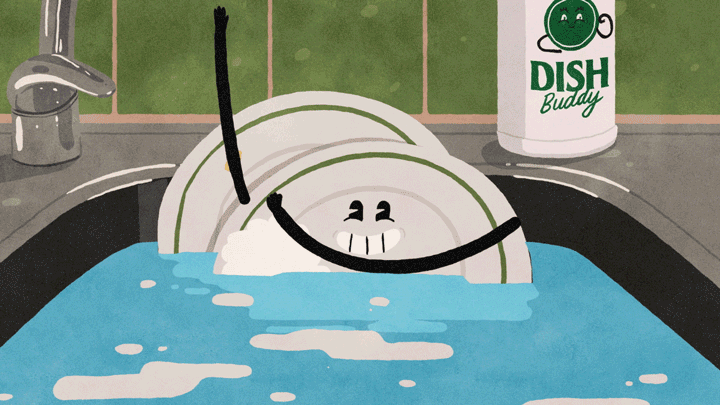The way to get things done is not to mind who gets the credit of doing them
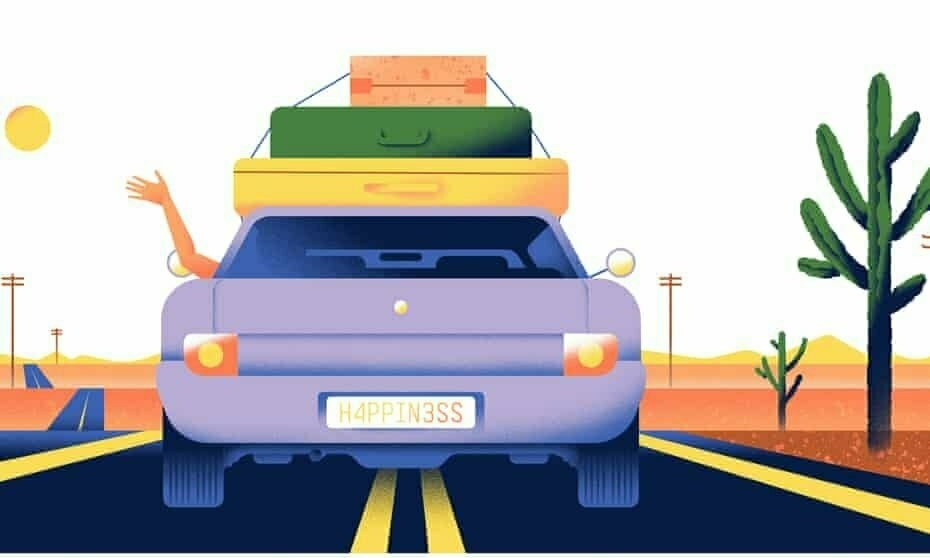
👋 Oliver Burkeman's last column: the eight secrets to a (fairly) fulfilled life
💃 One, two, free! 25 brilliant ways to escape 2020’s groundhog days
🛀 Why efficiency is dangerous and slowing down makes life better
Quotation-as-title by Benjamin Jowett. Image from top linked post.
Perfectionism is more toxic than you imagine
As someone who struggles with perfectionism on a daily basis, I needed to read this morning:
Perfectionism is more toxic than you imagine. Watch yourself and notice how often you’re being a perfectionist without even realising it. And see how it chips away at your happiness.
Rebecca Toh, ten recent thoughts
The other thoughts in the list are also worth reflecting on, especially the one about writing being the medium of learning.
Rethinking human responses to adversity
As a parent and former teacher I can get behind this:
ADHD is not a disorder, the study authors argue. Rather it is an evolutionary mismatch to the modern learning environment we have constructed. Edward Hagen, professor of evolutionary anthropology at Washington State University and co-author of the study, pointed out in a press release that “there is little in our evolutionary history that accounts for children sitting at desks quietly while watching a teacher do math equations at a board.”
Alison Escalante, What If Certain Mental Disorders Are Not Disorders At All?, Psychology Today
This is a great article based on a journal article about PTSD, depression, anxiety, and ADHD. As someone who has suffered from depression in the past, and still deals with anxiety, I absolutely think it has an important situational aspect.
That is to say, instead of just medicating people, we need to be thinking about their context.
[T]he stated goal of the paper is not to suddenly change treatments, but to explore new ways of studying these problems. “Research on depression, anxiety, and PTSD, should put greater emphasis on mitigating conflict and adversity and less on manipulating brain chemistry.”
Alison Escalante, What If Certain Mental Disorders Are Not Disorders At All?, Psychology Today
What man of energy does not find inactivity a punishment?
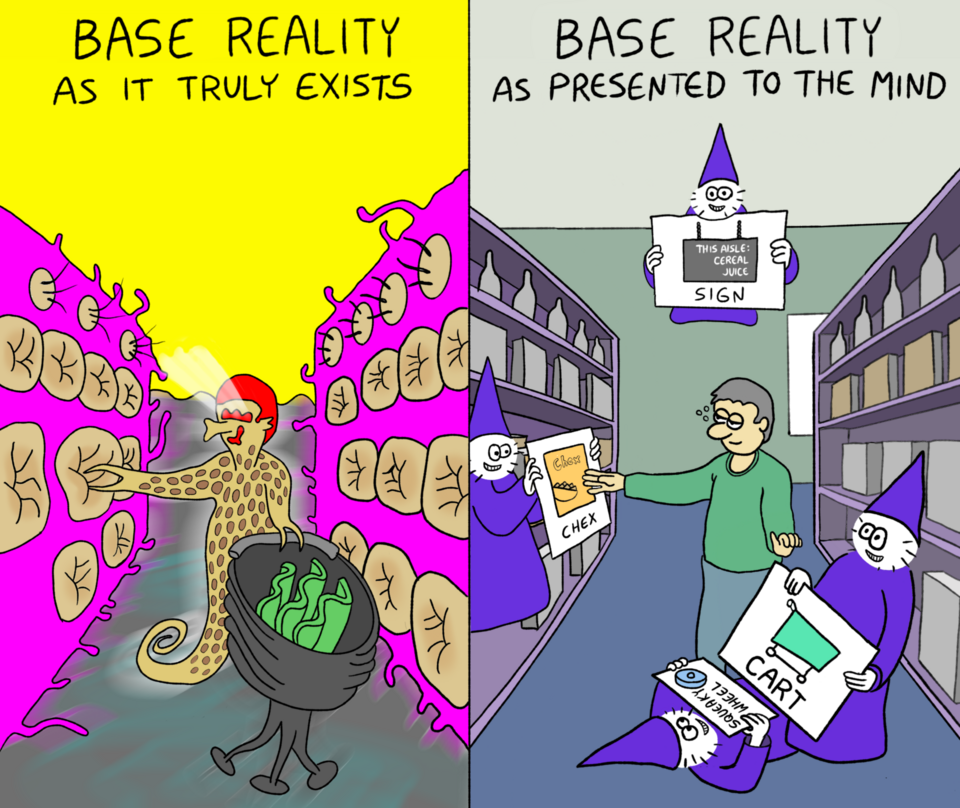
🤯 Understanding Consciousness with Color-Coded Cartoons
👍 Four-day working week could create 500K new jobs in UK, study says
💀 The World Memorial to the Pandemic
🤩 Going all-in on remote work: The technical and cultural changes
🎲 How to Add More Play to Your Grown-Up Life, Even Now
Quotation-as-title from Seneca. Image from top linked post.
Saturday sailings
I deactivated my Twitter account this week. I've done that before, but this time I'm honestly not sure if I'll reactivate it.
Given that I get a fair few links through Twitter, I wonder if the kind of things I share in these weekly link roundups will change? We shall see, I guess. You can connect with me via the Fediverse: https://mastodon.social/@dajbelshaw
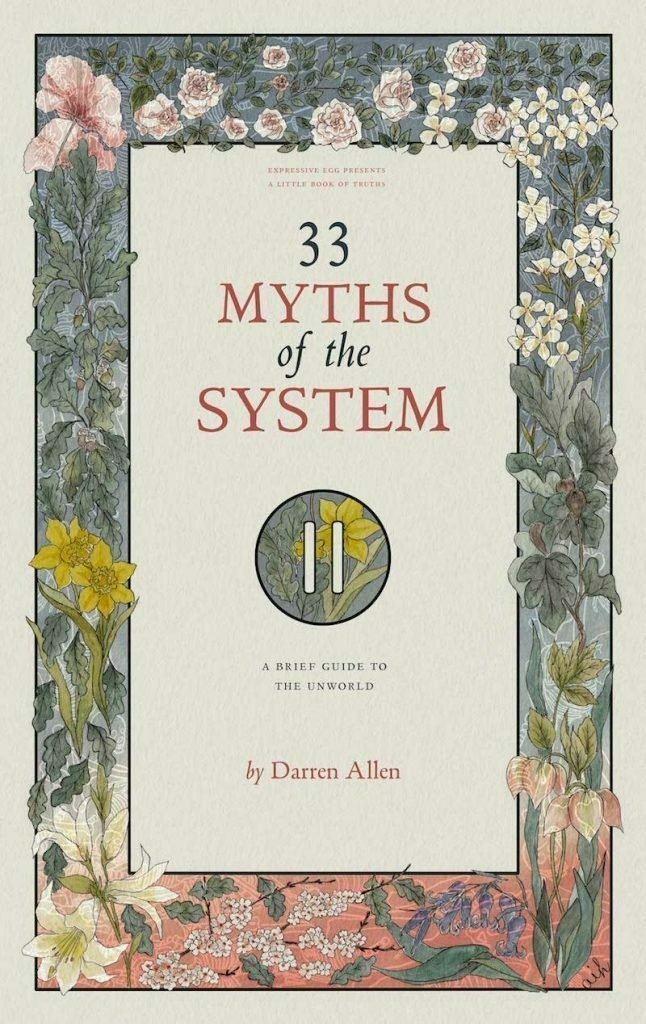
33 Myths of the System
Drawing on the entire history of radical thought, while seeking to plumb their common depths, 33 Myths of the System, presents a synthesis of independent criticism, a straightforward exposure of the justifications of the world-system, along with a new way to perceive and understand the unhappy supermind that directs, penetrates and even lives our lives.
Darren Allen
While I didn't agree with absolutely everything in this free e-book, it's fair to say it blew my mind. Highly recommended, especially for thoughtful people. One of the best things I've read in the last decade in terms of getting me to question... everything.
A catastrophe at Twitter
In any case, Twitter’s response to the incident offered further cause for distress. The company’s initial tweet on the subject said almost nothing, and two hours later it had followed only to say what many users were forced to discover for themselves: that Twitter had disabled the ability of many verified users to tweet or reset their passwords while it worked to resolve the hack’s underlying cause.
The near-silencing of politicians, celebrities, and the national press corps led to much merriment on the service — see this, along with Those good tweets below, for some fun — but the move had other, darker implications. Twitter is, for better and worse, one of the world’s most important communications systems, and among its users are accounts linked to emergency medical services. The National Weather Service in Lincoln, IL, for example, had just tweeted a tornado warning before suddenly going dark. To the extent that anyone was relying on that account for further information about those tornadoes, they were out of luck.
Casey Newton (The INterface)
I didn't actually deactivate my Twitter account because of the hack — that was actually more to do with the book mentioned above — but as a verified user, this certainly reinforced my decision. Just a reminder that at least one person with nuclear codes uses Twitter as their primary means of communication.
This is Fine: Optimism & Emergency in the P2P Network
Centralised platforms crave data collection and thirst for trust from the communities they seek to exploit. These platforms sell bloated, overpowered hardware that cannot be repaired, vulnerable to drops in consumer spending or spasms in the supply chain. They anxiously eye legislation to compel encryption backdoors, which will further weaken the trust they need so badly. They wobble beneath network disruptions (such as the worldwide slowdowns in March under COVID-19 load surges) that incapacitate cloud-dependent devices. They sleep with one eye open in countries where authoritarian governments compel them or their employees to operate as an informal arm of enforcement. These current trajectories point to the accelerating erosion of centralised platform power.
Cade Diehm (The New Design Congress)
This is an incredible article that's very well presented. I keep talking about the importance of decentralisation, and this article backs that up — but also explains how and why decentralised social networks need to do better.

Our remote work future is going to suck
While the upsides to remote work are true, for many people remote work is a poison pill — one where you are given “control” in the name of productivity in exchange for some pretty nasty long-term effects.
In reality, remote work makes you vulnerable to outsourcing, reduces your job to a metric, creates frustrating change-averse bureaucracies, and stifles your career growth. The lack of scrutiny our remote future faces is going to result in frustrated workers and ineffective companies.
Sean Blanda
I'm a proponent of remote work, but I was nodding along to many of the points made in this post. Context is everything, and there's something to be said about being able to go home to escape work.
CO2 emissions on the web
Your content site probably doesn’t need JavaScript. You probably don’t need a CSS framework. You probably don’t need a custom font. Use responsive images. Extend your HTTP cache lifetimes. Use a static site generator or wp2static.com instead of dynamically generating each page on the fly, despite never changing. Consider ditching that third-party analytics service that you never look at anyway, especially if they also happen to sell ads. Run your website through websitecarbon.com. Choose a green web host.
Danny van Kooten
This week I changed the theme over at my personal blog to one that is much lighter. When I shared what I'd done on Mastodon, someone commented that they didn't think it would make that much difference. This post was written by someone who popped up to rebut what they said.
Ask a Sane Person: Jia Tolentino on Practicing the Discipline of Hope
INTERVIEW: What has this pandemic confirmed or reinforced about your view of society?
TOLENTINO: That capitalist individualism has turned into a death cult; that the internet is a weak substitute for physical presence; that this country criminally undervalues its most important people and its most important forms of labor; that we’re incentivized through online mechanisms to value the representation of something (like justice) over the thing itself; that most of us hold more unknown potential, more negative capability, than we’re accustomed to accessing; that the material conditions of life in America are constructed and maintained by those best set up to exploit them; and that the way we live is not inevitable at all.
Christopher Bollen
I have to confess to not knowing who Jia Tolentino was before stumbling across this via the Hurry Slowly newsletter (although I must have read her writing before). This is a fantastic interview, which you should read in its entirety.
Header image by Fab Lentz
Saturday shakings
Whew, so many useful bookmarks to re-read for this week’s roundup! It took me a while, so let’s get on with it…
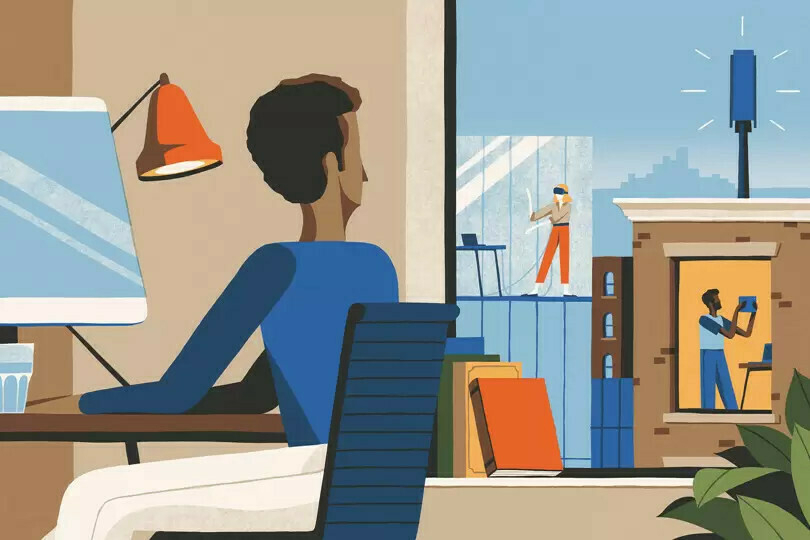
What is the future of distributed work?
To Bharat Mediratta, chief technology officer at Dropbox, the quarantine experience has highlighted a huge gap in the market. “What we have right now is a bunch of different productivity and collaboration tools that are stitched together. So I will do my product design in Figma, and then I will submit the code change on GitHub, I will push the product out live on AWS, and then I will communicate with my team using Gmail and Slack and Zoom,” he says. “We have all that technology now, but we don't yet have the ‘digital knowledge worker operating system’ to bring it all together.”
WIRED
OK, so this is a sponsored post by Dropbox on the WIRED website, but what it highlights is interesting. For example, Monday.com (which our co-op uses) rebranded itself a few months ago as a 'Work OS'. There's definitely a lot of money to be made for whoever manages to build an integrated solution, although I think we're a long way off something which is flexible enough for every use case.
The Definition of Success Is Autonomy
Today, I don’t define success the way that I did when I was younger. I don’t measure it in copies sold or dollars earned. I measure it in what my days look like and the quality of my creative expression: Do I have time to write? Can I say what I think? Do I direct my schedule or does my schedule direct me? Is my life enjoyable or is it a chore?
Ryan Holiday
Tim Ferriss has this question he asks podcast guests: "If you could have a gigantic billboard anywhere with anything on it what would it say and why?" I feel like the title of this blog post is one of the answers I would give to that question.
Do The Work
We are a small group of volunteers who met as members of the Higher Ed Learning Collective. We were inspired by the initial demand, and the idea of self-study, interracial groups. The initial decision to form this initiative is based on the myriad calls from people of color for white-bodied people to do internal work. To do the work, we are developing a space for all individuals to read, share, discuss, and interrogate perspectives on race, racism, anti-racism, identity in an educational setting. To ensure that the fight continues for justice, we need to participate in our own ongoing reflection of self and biases. We need to examine ourselves, ask questions, and learn to examine our own perspectives. We need to get uncomfortable in asking ourselves tough questions, with an understanding that this is a lifelong, ongoing process of learning.
Ian O'Byrne
This is a fantastic resource for people who, like me, are going on a learning journey at the moment. I've found the podcast Seeing White by Scene on Radio particularly enlightening, and at times mind-blowing. Also, the Netflix documentary 13th is excellent, and available on YouTube.
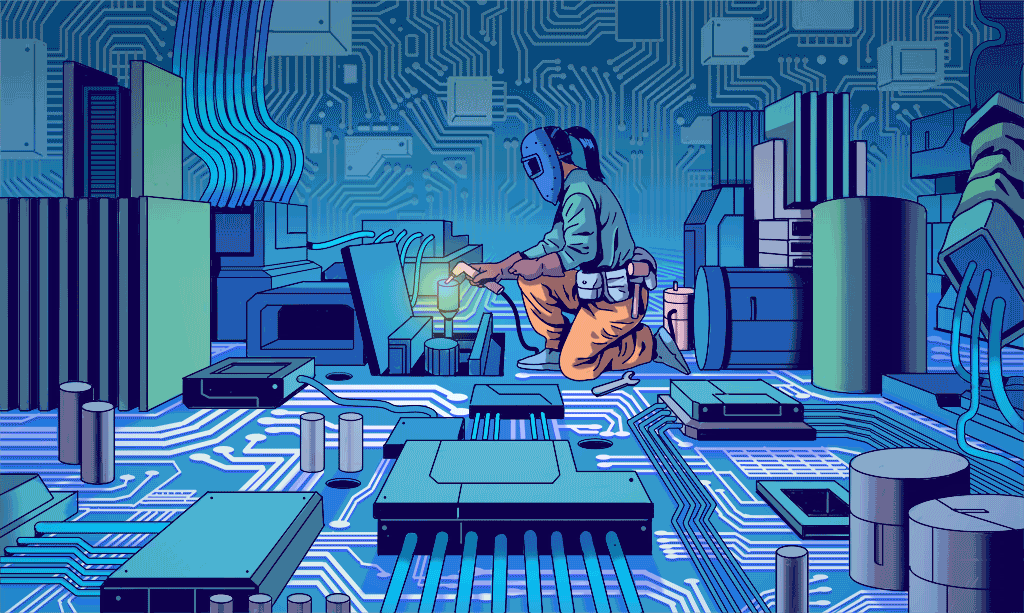
How to Make Your Tech Last Longer
If we put a small amount of time into caring for our gadgets, they can last indefinitely. We’d also be doing the world a favor. By elongating the life of our gadgets, we put more use into the energy, materials and human labor invested in creating the product.
Brian X. Chen (The new York times)
This is a pretty surface-level article that basically suggests people take their smartphone to a repair shop instead of buying a new one. What it doesn't mention is that aftermarket operating systems such as the Android-based LineageOS can extend the lifetime of smartphones by providing security updates long beyond those provided by vendors.
Law enforcement arrests hundreds after compromising encrypted chat system
EncroChat sold customized Android handsets with GPS, camera, and microphone functionality removed. They were loaded with encrypted messaging apps as well as a secure secondary operating system (in addition to Android). The phones also came with a self-destruct feature that wiped the device if you entered a PIN.
The service had customers in 140 countries. While it was billed as a legitimate platform, anonymous sources told Motherboard that it was widely used among criminal groups, including drug trafficking organizations, cartels, and gangs, as well as hitmen and assassins.
EncroChat didn’t become aware that its devices had been breached until May after some users noticed that the wipe function wasn’t working. After trying and failing to restore the features and monitor the malware, EncroChat cut its SIM service and shut down the network, advising customers to dispose of their devices.
Monica Chin (The Verge)
It goes without saying that I don't want assassins, drug traffickers, and mafia types to be successful in life. However, I'm always a little concerned when there are attacks on encryption, as they're compromising systems also potentially used by protesters, activists, and those who oppose the status quo.
Uncovered: 1,000 phrases that incorrectly trigger Alexa, Siri, and Google Assistant
The findings demonstrate how common it is for dialog in TV shows and other sources to produce false triggers that cause the devices to turn on, sometimes sending nearby sounds to Amazon, Apple, Google, or other manufacturers. In all, researchers uncovered more than 1,000 word sequences—including those from Game of Thrones, Modern Family, House of Cards, and news broadcasts—that incorrectly trigger the devices.
“The devices are intentionally programmed in a somewhat forgiving manner, because they are supposed to be able to understand their humans,” one of the researchers, Dorothea Kolossa, said. “Therefore, they are more likely to start up once too often rather than not at all.”
Dan Goodin (Ars Technica)
As anyone with voice assistant-enabled devices in their home will testify, the number of times they accidentally spin up, or misunderstand what you're saying can be amusing. But we can and should be wary of what's being listened to, and why.
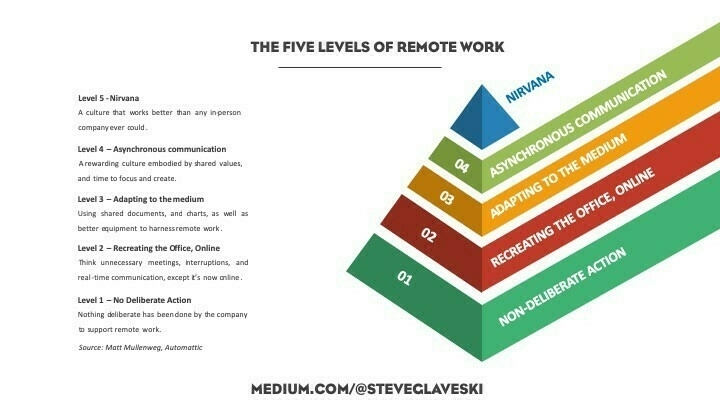
The Five Levels of Remote Work — and why you’re probably at Level 2
Effective written communication becomes critical the more companies embrace remote work. With an aversion to ‘jumping on calls’ at a whim, and a preference for asynchronous communication... [most] communications [are] text-based, and so articulate and timely articulation becomes key.
Steve Glaveski (The Startup)
This is from March and pretty clickbait-y, but everyone wants to know how they can improve - especially if didn't work remotely before the pandemic. My experience is that actually most people are at Level 3 and, of course, I'd say that I and my co-op colleagues are at Level 5 given our experience...
Why Birds Can Fly Over Mount Everest
All mammals, including us, breathe in through the same opening that we breathe out. Can you imagine if our digestive system worked the same way? What if the food we put in our mouths, after digestion, came out the same way? It doesn’t bear thinking about! Luckily, for digestion, we have a separate in and out. And that’s what the birds have with their lungs: an in point and an out point. They also have air sacs and hollow spaces in their bones. When they breathe in, half of the good air (with oxygen) goes into these hollow spaces, and the other half goes into their lungs through the rear entrance. When they breathe out, the good air that has been stored in the hollow places now also goes into their lungs through that rear entrance, and the bad air (carbon dioxide and water vapor) is pushed out the front exit. So it doesn’t matter whether birds are breathing in or out: Good air is always going in one direction through their lungs, pushing all the bad air out ahead of it.
Walter Murch (Nautilus)
Incredible. Birds are badass (and also basically dinosaurs).
Montaigne Fled the Plague, and Found Himself
In the many essays of his life he discovered the importance of the moderate life. In his final essay, “On Experience,” Montaigne reveals that “greatness of soul is not so much pressing upward and forward as knowing how to circumscribe and set oneself in order.” What he finds, quite simply, is the importance of the moderate life. We must then, he writes, “compose our character, not compose books.” There is nothing paradoxical about this because his literary essays helped him better essay his life. The lesson he takes from this trial might be relevant for our own trial: “Our great and glorious masterpiece is to live properly.”
Robert Zaresky (The New York Times)
Every week, Bryan Alexander replies to the weekly Thought Shrapnel newsletter. Last week, he sent this article to both me and Chris Lott (who produces the excellent Notabilia).
We had a bit of a chat, with us sharing our love of How to Live: A Life of Montaigne in One Question and Twenty Attempts at An Answer by Sarah Bakewell, and well as the useful tidbits it's possible glean from Stefan Zweig's short biography simply entitled Montaigne.
Header image by Nicolas Comte
Saturday shoutings
The link I'm most enthusiastic about sharing this week is one to a free email-based course I've created with my co-op colleagues. It's entitled The 7 Habits of Highly Effective Virtual Meetings and part of a new series we're working on.
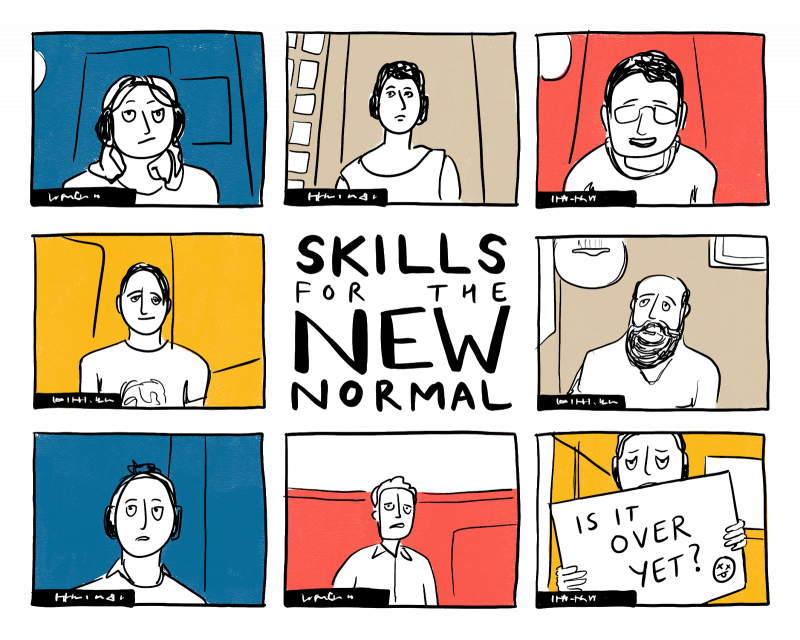
The other links are slightly fewer in number this week because time, it turns out, is finite.
Clean Language: David Grove Questioning Method
Developing Questions
"(And) what kind of X (is that X)?"
"(And) is there anything else about X?"
"(And) where is X? or (And) whereabouts is X?"
"(And) that's X like what?"
"(And) is there a relationship between X and Y?"
"(And) when X, what happens to Y?Sequence and Source Questions
"(And) then what happens? or (And) what happens next?"
"(And) what happens just before X?"
"(And) where could X come from?"Intention Questions
"(And) what would X like to have happen?"
"(And) what needs to happen for X?"
"(And) can X (happen)?"The first two questions: "What kind of X (is that X)?" and "Is there anything else about X?" are the most commonly used.
As a general guide, these two questions account for around 50% of the questions asked in a typical Clean Language session.
BusinessBalls
I had a great chat with Kristian Still this week, for the first time in about a decade. Kristian was part of EdTechRoundUp back in the day, and early EduTwitter. Among the many things we discussed is his enthusiasm for "clean questioning" which I'm going to investigate further.
How ‘Sustainable’ Web Design Can Help Fight Climate Change
Even our throwaway habits can add up to a mountain of carbon. Consider all the little social emails we shoot back and forth—“thanks,” “got it,” “lol.” The UK energy firm Ovo examined email usage and—using data from Lancaster University professor Mike Berners-Lee, who analyzes carbon footprints—they found that if every adult in the UK just sent one less “thank you” email per day, it would cut 16 tons of carbon each year, equal to 22 round-trip flights between New York and London. They also found that 49 percent of us often send thank-you emails to people “within talking distance.” We can lower our carbon output if we'd just take the headphones off for a minute and stop behaving like a bunch of morlocks.
Clive Thompson (WIRED)
Small differences all add up. Our design choices and the decisions we make about technology all have a part to play in fighting climate change.

Apple, Big Sur, and the rise of Neumorphism
When you boil it down, neumorphism is a focus on how light moves in three-dimensional space. Its predecessor, skeumorphism, created realism in digital interfaces by simulating textures on surfaces like felt on a poker table or the brushed metal of a tape recorder. An ancillary — though under-developed — aspect of this design style was lighting that interacted realistically with the materials that were being represented; this is why shadows and darkness were so prevalent in those early interfaces.
Jack Koloskus (Input)
The dominant design language over the last five years, without doubt, has been Google's Material Design. Will a neumorphic approach take over? It's certainly an interesting approach.
Snowden: Tech Workers Are Complicit in How Their Companies Hurt Society
He called on those in the tech industry to look at the bigger picture regarding their work and its implications beyond simply a project—and to think deeply and take a stronger stand with regards to who their labor actually serves.
“It’s not enough to read, it’s not enough to believe in something, it’s not enough to write something, you have to eventually stand for something if you want things to change,” he said.
Kevin Truong (Motherboard)
The tech industry is an interesting one as it's a relatively new and immature one, at least in its current guise. As a result, the ethics, and the checks and balances aren't quite there yet.
To my mind, things like unions and professional associations show maturity and the kind of coming together that don't put moral decisions on the shoulders of individuals, but rather on the whole sector.
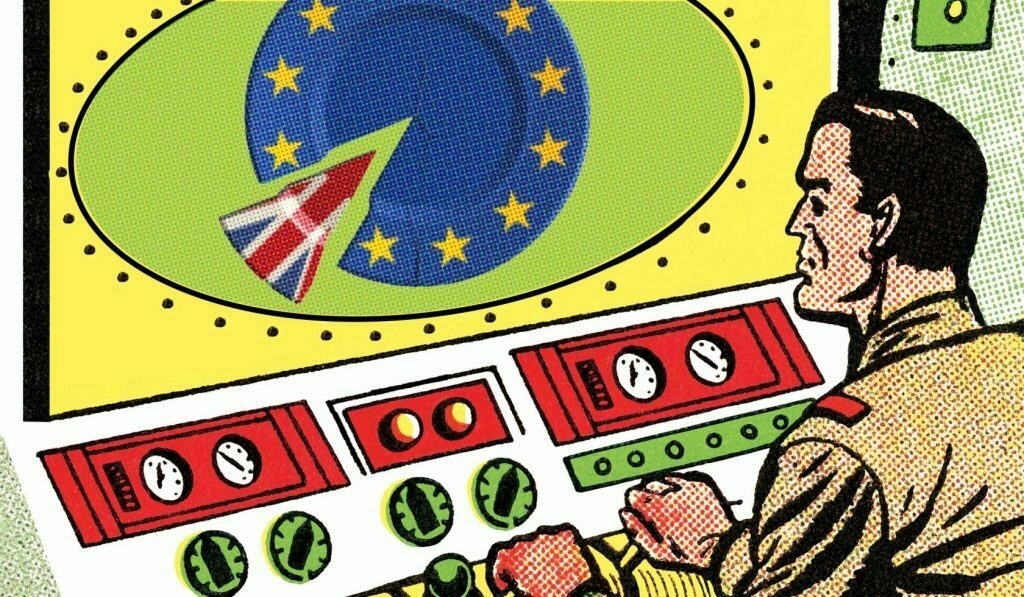
Tea, Biscuits, and Empire: The Long Con of Britishness
[T]here is a narrative chasm between the twee and borderless dreamscape of fantasy Britain and actual, material Britain, where rents are rising and racists are running brave. The chasm is wide, and a lot of people are falling into it. The omnishambles of British politics is what happens when you get scared and mean and retreat into the fairytales you tell about yourself. When you can no longer live within your own contradictions. When you want to hold on to the belief that Britain is the land of Jane Austen and John Lennon and Sir Winston Churchill, the war hero who has been repeatedly voted the greatest Englishman of all time. When you want to forget that Britain is also the land of Cecil Rhodes and Oswald Mosley and Sir Winston Churchill, the brutal colonial administrator who sanctioned the building of the first concentration camps and condemned millions of Indians to death by starvation. These are not contradictions, even though the drive to separate them is cracking the country apart. If you love your country and don’t own its difficulties and its violence, you don’t actually love your country. You’re just catcalling it as it goes by.
Laurie Penny (Longreads)
I always find looking at my country through the lens of foreigners cringe-inducing. I suppose it's a narrative produced for tourists but, sadly, we seem to have believed our own rhetoric, and look where it's gotten us...
How Big Tech Monopolies Distort Our Public Discourse
The idea that Big Tech can mold discourse through bypassing our critical faculties by spying on and analyzing us is both self-serving (inasmuch as it helps Big Tech sell ads and influence services) and implausible, and should be viewed with extreme skepticism
But you don't have to accept extraordinary claims to find ways in which Big Tech is distorting and degrading our public discourse. The scale of Big Tech makes it opaque and error-prone, even as it makes the job of maintaining a civil and productive space for discussion and debate impossible.
Cory Doctorow (EFF)
A tour de force from Doctorow, who eviscerates the companies that make up 'Big Tech' and the role they have in hollowing-out civic society.
Header image by Andrea Piacquadio
Saturday scrapings
Every week, I go back through the links I've saved, pick out the best ones, and share them here. This week is perhaps even more eclectic than usual. Enjoy!
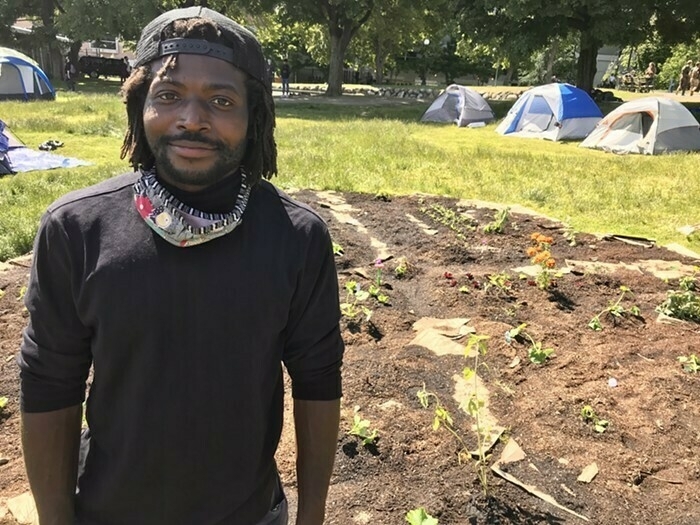
Meet the Farmer Behind CHAZ's Vegetable Gardens
Marcus was the first to start gardening in the park, though he was quickly joined by friends and strangers. This isn’t the work of a casual amateur; Henderson has an Energy Resources Engineering degree from Stanford University, a Master’s degree in Sustainability in the Urban Environment, and years of experience working in sustainable agriculture. His Instagram shows him hard at work on various construction and gardening projects, and he’s done community development at organic farms around the world.
Matt Baume (The Stranger)
I love this short article about Marcus Henderson, the first person to start planting in Seattle's Capitol Hill Autonomous Zone.
The Rich Are 'Defunding' Our Democracy
“Apparently,” comments [journalist David] Sirota, “we’re expected to be horrified by proposals to reduce funding for the militarized police forces that are violently attacking peaceful protesters — but we’re supposed to obediently accept the defunding of the police forces responsible for protecting the population from the wealthy and powerful.”
Sam Pizzigati (Inequality.org)
A lot of people have been shocked by the calls to 'defund the police' on the back of the Black Lives Matter protests. The situation is undoubtedly worse in the US, but I particularly liked this explainer image, that I came across via Mastodon:
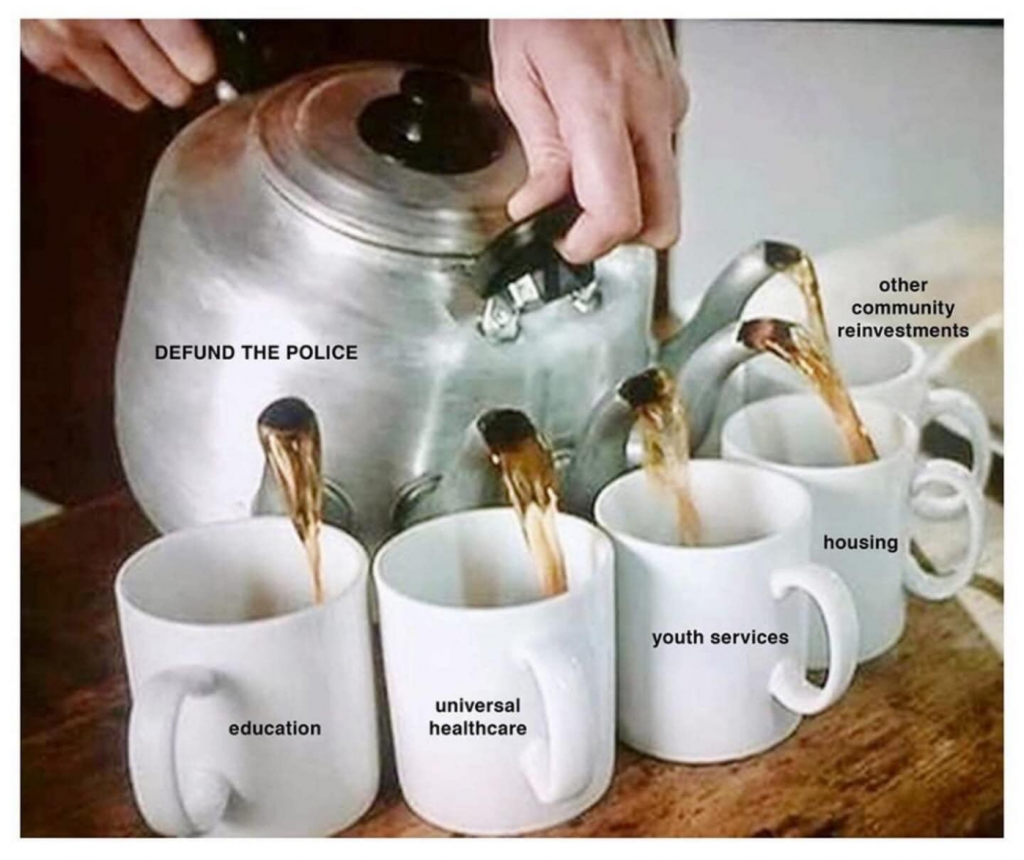
Peasants' Revolt
Yet perhaps the most surprising feature of the revolt is that in-spite of the modern title, Peasants' Revolt didn't gain usage until the late nineteenth century, the people who animated the movement weren't peasants at all. They were in many respects the village elite. True, they weren't noble magnates, but they were constables, stewards and jurors. In short, people who were on the up and saw an opportunity to press their agenda.
Robert Winter
I love reading about things I used to teach, especially when they're written by interesting people about which I want to know more. This blog post is by Robert Winter, "philosopher and historian by training, Operations Director by pay cheque". I discovered is as part of the #100DaysToOffload challenge, largely happening on the Fediverse, and to which I'm contributing.

Three people with inherited diseases successfully treated with CRISPR
Two people with beta thalassaemia and one with sickle cell disease no longer require blood transfusions, which are normally used to treat severe forms of these inherited diseases, after their bone marrow stem cells were gene-edited with CRISPR.
Michael Le Page (New Scientist)
CRISPR is a way of doing gene editing within organisms. sAs far as I'm aware, this is one of the first times it's been used to treat conditions in humans. I'm sure it won't be the last.
Choose Your Own Fake News
Choose Your Own Fake News is an interactive "choose your own adventure" game. Play the game as Flora, Jo or Aida from East Africa, and navigate the world of disinformation and misinformation through the choices you make. Scrutinize news and information about job opportunities, vaccines and upcoming elections to make the right choices!
This is the kind of thing that the Mozilla Foundation does particularly well: either producing in-house, or funding very specific web-based tools to teach people things. In this case, it's fake news. And it's really good.
Why are Google and Apple dictating how European democracies fight coronavirus?
The immediate goal for governments and tech companies is to strike the right balance between privacy and the effectiveness of an application to limit the spread of Covid-19. This requires continuous collaboration between the two with the private sector, learning from the experience of national health authorities and adjusting accordingly. Latvia, together with the rest of Europe, stands firm in defending privacy, and is committed to respecting both the individual’s right to privacy and health while applying its own solutions to combat Covid-19.
Ieva Ilves (The Guardian)
This is an article written by an an adviser to the president of Latvia on information and digital policy. They explain some of the nuance behind the centralised vs decentralised contact tracing app models which I hadn't really thought about.
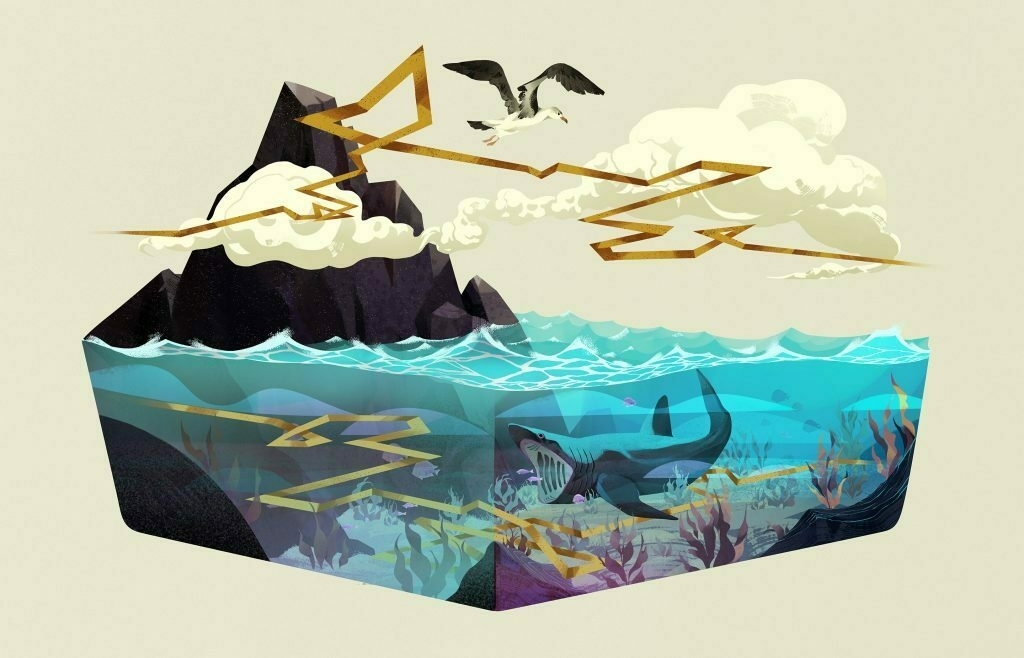
Random Search Wired Into Animals May Help Them Hunt
Lévy walks are now seen as a movement pattern that a nervous system can produce in the absence of useful sensory or mnemonic information, when it is an animal’s most advantageous search strategy. Of course, many animals may never employ a Lévy walk: If a polar bear can smell a seal, or a cheetah can see a gazelle, the animals are unlikely to engage in a random search strategy. “We expect the adaptation for Lévy walks to have appeared only where they confer practical advantages,” Viswanathan said.
Liam Drew (QUanta Magazine)
If you've watched wildlife documentaries, you probably know about Lévy walks (or 'flights'). This longish article gives a fascinating insight into the origin of the theory and how it can be useful in protecting different species.
A plan to turn the atmosphere into one, enormous sensor
One of AtmoSense’s first goals will be to locate and study phenomena at or close to Earth’s surface—storms, earthquakes, volcanic eruptions, mining operations and “mountain waves”, which are winds associated with mountain ranges. The aim is to see if atmospheric sensing can outperform existing methods: seismographs for earthquakes, Doppler weather radar for storms and so on.
The Economist
This sounds potentially game-changing. I can see the positives, but I wonder what the negatives will be?
Paths of desire: lockdown has lent a new twist to the trails we leave behind
Desire paths aren’t anything new – the term has been traced back to the French philosopher Gaston Bachelard, who wrote of “lignes de désir” in his 1958 book The Poetics of Space. Nature author Robert Macfarlane has written more recently about the inherent poetry of the paths. In his 2012 book The Old Ways: A Journey on Foot, Macfarlane calls them “elective easements” and says: “Paths are human; they are traces of our relationships.” Desire paths have been created by enthusiastic dogs in back gardens, by superstitious humans avoiding scaffolding and by students seeking shortcuts to class. Yet while illicit trails may have marked the easier (ie shorter) route for centuries, the pandemic has turned them into physical markers of our distance. Desire paths are no longer about making life easier for ourselves, but about preserving life for everyone.
Amelia Tait (The Guardian)
I've used desire paths as a metaphor many times in presentations and workshops over the last decade. This is an article that specifically talks about how they've sprung up during the pandemic.
Header image by Hans Braxmeier
Saturday soundings
Black Lives Matter. The money from this month's kind supporters of Thought Shrapnel has gone directly to the 70+ community bail funds, mutual aid funds, and racial justice organizers listed here.
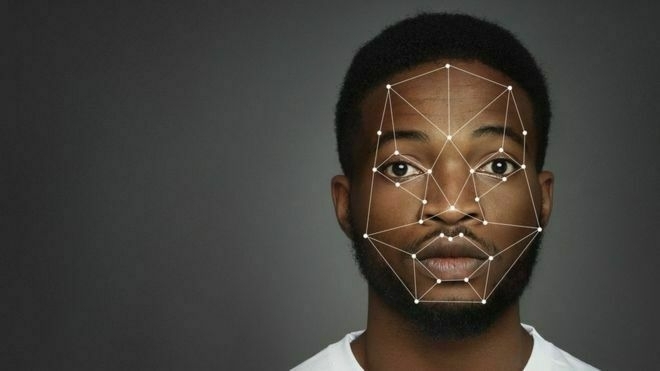
IBM abandons 'biased' facial recognition tech
A 2019 study conducted by the Massachusetts Institute of Technology found that none of the facial recognition tools from Microsoft, Amazon and IBM were 100% accurate when it came to recognising men and women with dark skin.
And a study from the US National Institute of Standards and Technology suggested facial recognition algorithms were far less accurate at identifying African-American and Asian faces compared with Caucasian ones.
Amazon, whose Rekognition software is used by police departments in the US, is one of the biggest players in the field, but there are also a host of smaller players such as Facewatch, which operates in the UK. Clearview AI, which has been told to stop using images from Facebook, Twitter and YouTube, also sells its software to US police forces.
Maria Axente, AI ethics expert at consultancy firm PwC, said facial recognition had demonstrated "significant ethical risks, mainly in enhancing existing bias and discrimination".
BBC News
Like many newer technologies, facial recognition is already a battleground for people of colour. This is a welcome, if potential cynical move, by IBM who let's not forget literally provided technology to the Nazis.
How Wikipedia Became a Battleground for Racial Justice
If there is one reason to be optimistic about Wikipedia’s coverage of racial justice, it’s this: The project is by nature open-ended and, well, editable. The spike in volunteer Wikipedia contributions stemming from the George Floyd protests is certainly not neutral, at least to the extent that word means being passive in this moment. Still, Koerner cautioned that any long-term change of focus to knowledge equity was unlikely to be easy for the Wikipedia editing community. “I hope that instead of struggling against it they instead lean into their discomfort,” she said. “When we’re uncomfortable, change happens.”
Stephen Harrison (Slate)
This is a fascinating glimpse into Wikipedia and how the commitment to 'neutrality' affects coverage of different types of people and event feeds.
Deeds, not words
Recent events have revealed, again, that the systems we inhabit and use as educators are perfectly designed to get the results they get. The stated desire is there to change the systems we use. Let’s be able to look back to this point in two years and say that we have made a genuine difference.
Nick Dennis
Some great questions here from Nick, some of which are specific to education, whereas others are applicable everywhere.
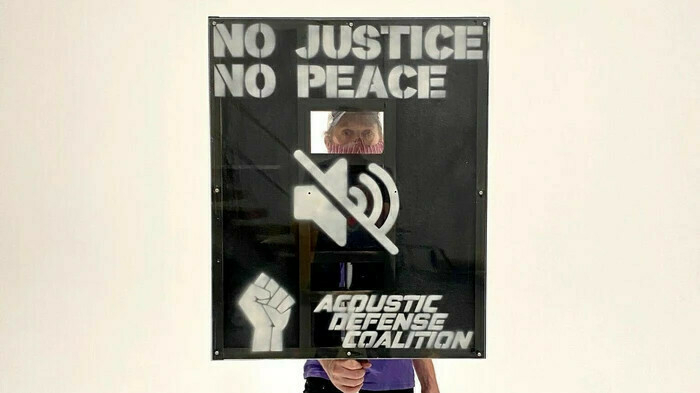
Audio Engineers Built a Shield to Deflect Police Sound Cannons
Since the protests began, demonstrators in multiple cities have reported spotting LRADs, or Long-Range Acoustic Devices, sonic weapons that blast sound waves at crowds over large distances and can cause permanent hearing loss. In response, two audio engineers from New York City have designed and built a shield which they say can block and even partially reflect these harmful sonic blasts back at the police.
Janus Rose (Vice)
For those not familiar with the increasing militarisation of police in the US, this is an interesting read.
CMA to look into Facebook's purchase of gif search engine
The Competition and Markets Authority (CMA) is inviting comments about Facebook’s purchase of a company that currently provides gif search across many of the social network’s competitors, including Twitter and the messaging service Signal.
[...]
[F]or Facebook, the more compelling reason for the purchase may be the data that Giphy has about communication across the web. Since many services that integrate with the platform not only use it to find gifs, but also leave the original clip hosted on Giphy’s servers, the company receives information such as when a message is sent and received, the IP address of both parties, and details about the platforms they are using.
Alex Hern (The Guardian)
In my 2012 TEDx Talk I discussed the memetic power of gifs. Others might find this news surprising, but I don't think I would have been surprised even back then that it would be such a hot topic in 2020.
Also by the Hern this week is an article on Twitter's experiments around getting people to actually read things before they tweet/retweet them. What times we live in.
Human cycles: History as science
To Peter Turchin, who studies population dynamics at the University of Connecticut in Storrs, the appearance of three peaks of political instability at roughly 50-year intervals is not a coincidence. For the past 15 years, Turchin has been taking the mathematical techniques that once allowed him to track predator–prey cycles in forest ecosystems, and applying them to human history. He has analysed historical records on economic activity, demographic trends and outbursts of violence in the United States, and has come to the conclusion that a new wave of internal strife is already on its way1. The peak should occur in about 2020, he says, and will probably be at least as high as the one in around 1970. “I hope it won't be as bad as 1870,” he adds.
Laura Spinney (Nature)
I'm not sure about this at all, because if you go looking for examples of something to fit your theory, you'll find it. Especially when your theory is as generic as this one. It seems like a kind of reverse fortune-telling?

Universal Basic Everything
Much of our economies in the west have been built on the idea of unique ideas, or inventions, which are then protected and monetised. It’s a centuries old way of looking at ideas, but today we also recognise that this method of creating and growing markets around IP protected products has created an unsustainable use of the world’s natural resources and generated too much carbon emission and waste.
Open source and creative commons moves us significantly in the right direction. From open sharing of ideas we can start to think of ideas, services, systems, products and activities which might be essential or basic for sustaining life within the ecological ceiling, whilst also re-inforcing social foundations.
TessyBritton
I'm proud to be part of a co-op that focuses on openness of all forms. This article is a great introduction to anyone who wants a new way of looking at our post-COVID future.
World faces worst food crisis for at least 50 years, UN warns
Lockdowns are slowing harvests, while millions of seasonal labourers are unable to work. Food waste has reached damaging levels, with farmers forced to dump perishable produce as the result of supply chain problems, and in the meat industry plants have been forced to close in some countries.
Even before the lockdowns, the global food system was failing in many areas, according to the UN. The report pointed to conflict, natural disasters, the climate crisis, and the arrival of pests and plant and animal plagues as existing problems. East Africa, for instance, is facing the worst swarms of locusts for decades, while heavy rain is hampering relief efforts.
The additional impact of the coronavirus crisis and lockdowns, and the resulting recession, would compound the damage and tip millions into dire hunger, experts warned.
Fiona Harvey (The Guardian)
The knock-on effects of COVID-19 are going to be with us for a long time yet. And these second-order effects will themselves have effects which, with climate change also being in the mix, could lead to mass migrations and conflict by 2025.
Mice on Acid
What exactly a mouse sees when she’s tripping on DOI—whether the plexiglass walls of her cage begin to melt, or whether the wood chips begin to crawl around like caterpillars—is tied up in the private mysteries of what it’s like to be a mouse. We can’t ask her directly, and, even if we did, her answer probably wouldn’t be of much help.
Cody Kommers (Nautilus)
The bit about 'ego disillusion' in this article, which is ostensibly about how to get legal hallucinogens to market, is really interesting.
Header image by Dmitry Demidov
Saturday shruggings
I've got a proper Elgato green screen in my home office which I started using in earnest for virtual backgrounds this week. I'm quite fond of some of the Star Wars examples, but check out Disney, Studio Ghibli, The Simpsons, or even the curated collection on Unsplash!
It's been a crazy-busy week and I've worked a lot. Still, these are the things that caught my eye...
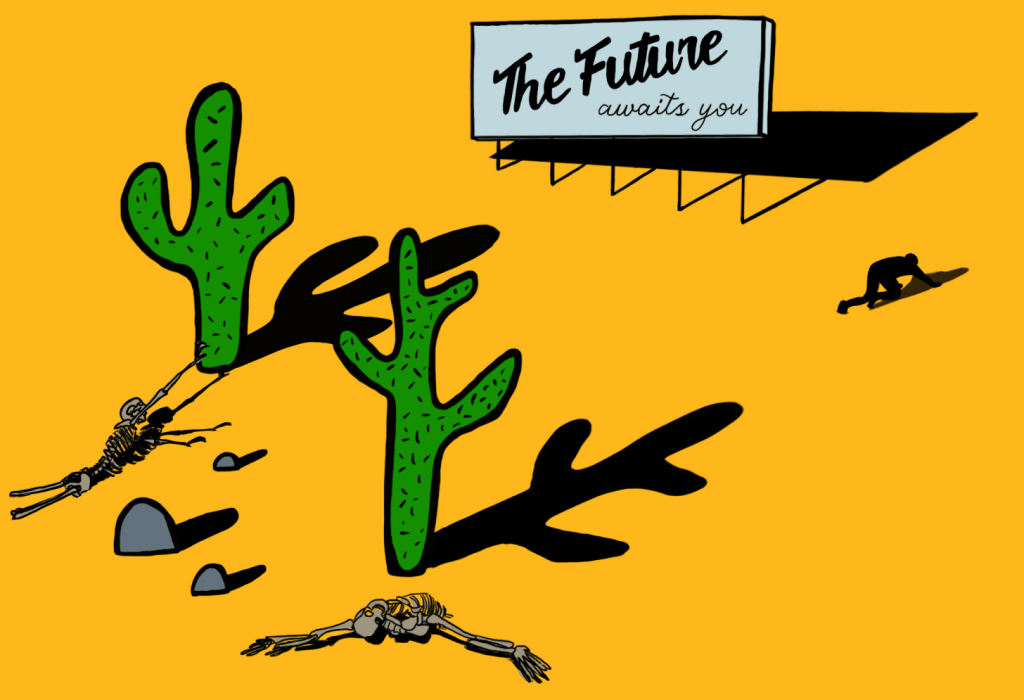
It's always the wrong time to do anything
When this is over, and it will someday be over in one form or another, there’ll be a plethora of articles on all the “clever” people who saw OPPORTUNITIES and took advantage of them.
These articles are going to pretend some of those people were able to Mentok the Mindtaker their way through a global pandemic right to the sweet, profitable truth at its centre. And it will be so much bullshit, because they didn’t know how it will turn out. None of us do. They just have enough resources that not knowing didn’t matter.[...]
Could you have done more? Yes. More isn’t the same as best. Whatever you did and however it was mitigated, constrained by your thoughts or desire or ambition or resources, was what was available for you to do. That’s how time works. We do what we do when we do it, and then, and here’s the best part, here’s the part that takes all those clever people mentioned earlier and just shoots them out into fucking space, then we can decide the next time whether we want to do more.
Thom Wong
So good. Read the whole thing. At it's heart it has the teachings of Epictetus.
Ten reasons why immunity passports are a bad idea
Societal stratification. Labelling people on the basis of their COVID-19 status would create a new measure by which to divide the ‘haves’ and the ‘have-nots’ — the immunoprivileged and the immunodeprived. Such labelling is particularly concerning in the absence of a free, universally available vaccine. If a vaccine becomes available, then people could choose to opt in and gain immune certification. Without one, stratification would depend on luck, money and personal circumstances. Restricting work, concerts, museums, religious services, restaurants, political polling sites and even health-care centres to COVID-19 survivors would harm and disenfranchise a majority of the population.
Natalie Kofler (Nature)
The NHS app has facial recognition, which paves the way for immunity passports. Not that anyone in their right mind would install it. This article outlines all of the reasons why such passports are a terrible idea, I've just quoted one of them here.
Dancing with tools
If you get good at a type of technology, you’ll find yourself using it often. On the other hand, if you decide that you’re somehow untalented at it (which is nonsense) or don’t take the time, then you’ll have sacrificed leverage and confidence that were offered to you.
Seth Godin
I tell my kids every single day that everyone they think is good at something has practised and practised and practised. It's particularly true when it comes to tech, yet the barriers never been so low.

Free as in Smash the Surveillance State: Alison Macrina on Library Freedom Project and Tor Browser
[R]ight now, seven of the top ten companies by market capitalization are tech companies. Seven out of ten are using data that they take from us, without our consent, to create their products. That is part of our labor power: those products are made with our emotional labor, our mental labor. Privacy is a way to reclaim our labor power. I want people to think about those relationships.
And, yeah, I also want people to not get their identities stolen. All of the more concrete problems are still important to me, especially when you think about who is subject to them—it's poor people and elderly people and people who don't have power. But with all of this work, I'm really trying to force a conversation about who controls the internet and what that means for our lives.
Alison Macrina (Logic Magazine)
Those people who don't think they need to know surveillance self-defence don't know what's coming next. Privacy is power.
Five years fighting for better tech for everyone
[R]ight now, seven of the top ten companies by market capitalization are tech companies. Seven out of ten are using data that they take from us, without our consent, to create their products. That is part of our labor power: those products are made with our emotional labor, our mental labor. Privacy is a way to reclaim our labor power. I want people to think about those relationships.
And, yeah, I also want people to not get their identities stolen. All of the more concrete problems are still important to me, especially when you think about who is subject to them—it's poor people and elderly people and people who don't have power. But with all of this work, I'm really trying to force a conversation about who controls the internet and what that means for our lives.
Alison Macrina (Logic Magazine)
If you don't think you need to protect your privacy, if you think that knowing how to use Tor relays is for geeks and hackers, then you are wrong. Privacy is about power, as this interview clearly and starkly points out.
How to read RSS in 2020
Another big benefit of RSS is that you curate your own feeds. You get to choose what you subscribe to in your feed reader, and the order in which the posts show up. You might prefer to read the oldest posts first, or the newest. You might group your feeds by topic or another priority. You are not subjected to the “algorithmic feed” of Facebook, Twitter, Instagram, YouTube, where they choose the order for you. You won’t miss your friends’ posts because the algorithm decided to suppress them, and you are not forced to endure ads disguised as content (unless a feed you subscribe to includes ads inside their posts).
Laura Kalbag
I pay Disroot for access to a Nextcloud instance where I do my RSS reading. Annoyingly, a couple of weeks ago they did an upgrade and the RSS module isn't compatible. So now I'm on the lookout for an alternative.
This article by Laura Kalbag is a good primer on what RSS is and how to use it. After all, curating your own information environment is important to our democratic processes.

Software will eat software in a remote-first world
We are coming to a point where software is developing so fast and the abstractions getting better that soon we will have more software written by a smaller number of people. In other words, just like software made legions of people working in other industries obsolete, it will soon make its creators less valuable too. In short, software will eat software. Or maybe, software will eat software people? I’m still working on it…
Can Duruk (Margins)
I don't actually agree with this line of reasoning at all, and find it quite US-centric, actually. Worth reading the whole thing, though, and seeing if you agree. I've found that it's easier to do collective action remotely, as it's easier to have quick backchannel conversations with colleagues.
Zuckerberg dismisses fact-checking after bragging about fact-checking
Zuckerberg has been reasonably consistent in making sure to leave large carve-outs in site policy for politicians, including the president. Last year, Facebook made clear that its community standards—including hate speech and abuse rules as well as fact-checking policies—do not apply to politicians or other newsworthy figures. The company has also said many times that political content and advertising does not need to be truthful, instead putting the onus on users to avoid lies or to recognize every time they are being lied to.
Kate Cox (Ars Technica)
Mark Zuckerberg is a menace to society, and I still refuse to use any of his companies products. Well, except Oculus, but I don't have to use a Facebook login for that.
An internal report four years ago found that 64% of all people joining extremist groups were down to Facebook's recommendation tools. Sixty. Four. Percent.
And they did nothing.
Joe Hart: 'All I want is to be a big part of a club. That's all that burns through me'
A simplistic assessment of Hart’s career would suggest it splits into two halves – before Pep and after Pep. Hart was told clearly by Guardiola in July 2016 that he had no future at City. Guardiola cannot be accused of being wrong for, in Ederson, he now has an outstanding goalkeeper who is highly accomplished with his feet. But Hart is intelligent and interested in exploring the blurred boundaries of football. Some of his greatest games – including the 2015 Champions League night at the Camp Nou when Lionel Messi described him as a “phenomenon” – followed soon after adversity. He is also keen to explain that, despite his predicament, his desire has intensified.
Donald McRae (The Guardian)
Oh man, I feel so sorry for Joe Hart. Yes, he's a wealthy sportsman but I think we can all empathise with a ruthless manager coming in and destroying his confidence.
It's a great article which is testament not only to the resilience of the man, but also the journalist writing about him.
I've linked to the original article in The Guardian but it's behind a (free) registration wall. Also available here.
Header image? The Shrug Emoji!
Saturday shiftings
I think this is the latest I've published my weekly roundup of links. That's partly because of an epic family walk we did today, but also because of work, and because of the length and quality of the things I bookmarked to come back to...
Enjoy!

FC97: Portal Economics
Most of us are still trapped in the mental coordinates of a world that isn’t waiting for us on the other side. You can see this in the language journalists are still using. The coronavirus is a ‘strategic surprise’ and we’re still very much in the ‘fog of war,’ dealing with the equivalent of an ‘alien invasion’ or an ‘unexpected asteroid strike.’ As I said back in March though, this is not a natural disaster, like an earthquake, a one-off event from which we can rebuild. It’s not a war or a financial crisis either. There are deaths, but no combatants, no physical resources have been destroyed, and there was no initial market crash, although obviously the markets are now reacting.
The crisis is of the entire system we’ve built. In another article, I described this as the bio-political straitjacket. We can’t reopen our economies, because if we do then more people will die. We can’t keep them closed either, because our entire way of life is built on growth, and without it, everything collapses. We can give up our civil liberties, submitting to more surveillance and control, but as Amartya Sen would say, what good is a society if the cost of our health and livelihoods is our hard fought for freedoms?
Gus Hurvey (Future Crunch)
This is an incredible read, and if you click through to anything this week to sit down and consume with your favourite beverage, I highly recommend this one.
Coronavirus shows us it’s time to rethink everything. Let's start with education
There’s nothing radical about the things we’re learning: it’s a matter of emphasis more than content – of centralising what is most important. Now, perhaps, we have an opportunity to rethink the entire basis of education. As local authorities in Scotland point out, outdoor learning could be the best means of getting children back to school, as it permits physical distancing. It lends itself to re-engagement with the living world. But, despite years of research demonstrating its many benefits, the funding for outdoor education and adventure learning has been cut to almost nothing.
George Monbiot (The Guardian)
To some extent, this is Monbiot using a different stick to bang the same drum, but he certainly has a point about the most important things to be teaching our young people as their future begins to look a lot different to ours.
The Machine Pauses
In 1909, following a watershed era of technological progress, but preceding the industrialized massacres of the Somme and Verdun, E.M. Forster imagined, in “The Machine Stops,” a future society in which the entirety of lived experience is administered by a kind of mechanical demiurge. The story is the perfect allegory for the moment, owing not least to its account of a society-wide sudden stop and its eerily prescient description of isolated lives experienced wholly through screens.
Stuart Whatley (The Hedgehog Review)
No, I didn't know what a 'demiurge' was either. Apparently, it's "an artisan-like figure responsible for fashioning and maintaining the physical universe".
This article, which not only quote E.M. Forster, but also Heidegger and Nathaniel Hawthorne, discusses whether we really should be allowing technology to dictate the momentum of society.
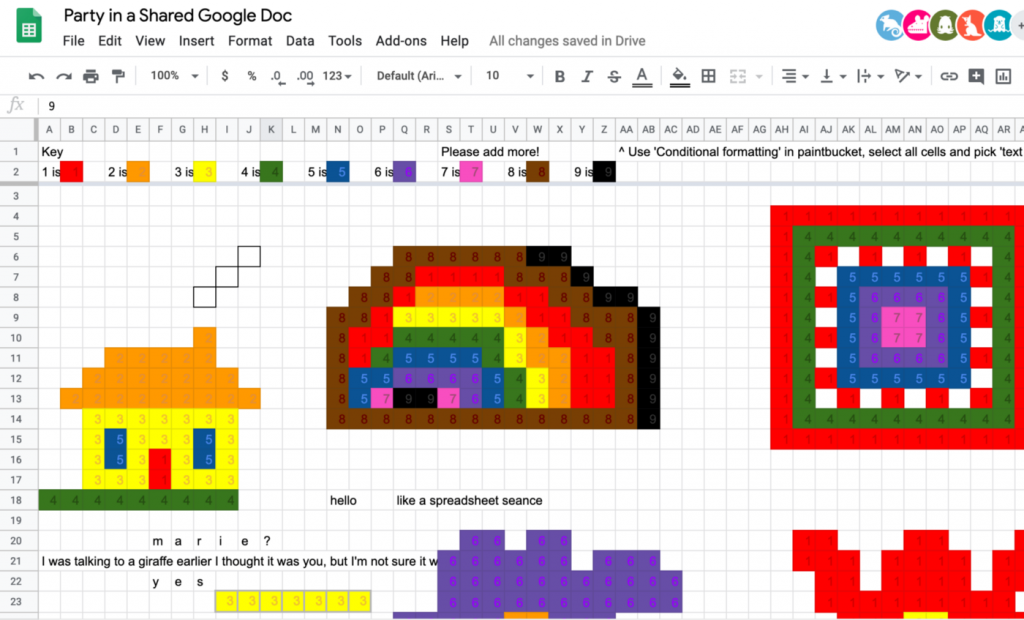
Party in a Shared Google Doc
The party has no communal chat log. Whilst I can enable edit permissions for those with the party link, shared google docs don’t not allow for chat between anonymous animals. Instead conversations are typed in cells. There are too many animals to keep track of who is who. I stop and type to someone in a nearby cell. My cursor is blue, theirs is orange. I have no idea if they are a close friend or a total stranger. How do you hold yourself and what do you say to someone when personal context is totally stripped away?
Marie Foulston
I love this so much.
Being messy when everything is clean
[T]o put it another way, people whose working lives can be mediated through technology — conducted from bedrooms and kitchen tables via Teams or Slack, email and video calls — are at much less risk. In fact, our laptops and smartphones might almost be said to be saving our lives. This is an unintended consequence of remote working, but it is certainly a new reality that needs to be confronted and understood.
And many people who can work from a laptop are also less likely to lose their jobs than people who work in the service and hospitality industries, especially those who have well-developed professional networks and high social capital. According to The Economist, this group are having a much better lockdown than most — homeschooling notwithstanding. But then, they probably also had a more comfortable life beforehand.
Rachel Coldicutt (Glimmers)
This post, "a scrapbook of links and questions that explore how civil society might be in a digital world," is a really interesting look at the physicality of our increasingly-digital world and how the messiness of human life is being 'cleaned up' by technology.
Remote work worsens inequality by mostly helping high-income earners
Given its potential benefits, telecommuting is an attractive option to many. Studies have shown a substantial number of workers would even agree to a lower salary for a job that would allow them to work from home. The appeal of remote work can be especially strong during times of crisis, but also exists under more normal circumstances.
The ongoing crisis therefore amplifies inequalities when it comes to financial and work-life balance benefits. If there’s a broader future adoption of telecommuting, a likely result of the current situation, that would still mean a large portion of the working population, many of them low-income workers, would be disadvantaged
Georges A. Tanguay & Ugo Lachapelle (The Conversation)
There's some interesting graphs included in this Canadian study of remote work. While I've written plenty about remote work before, I don't think I've really touched on how much it reinforces white, middle-class, male privilege.
The BBC has an article entitled Why are some people better at working from home than others? which suggests that succeeding and/or flourishing in a remote work situation is down to the individual, rather than the context. The truth is, it's almost always easier to be a man in a work environement — remote, or otherwise. This is something we need to change.

A first look at Unreal Engine 5
We’ve just released a first look at Unreal Engine 5. One of our goals in this next generation is to achieve photorealism on par with movie CG and real life, and put it within practical reach of development teams of all sizes through highly productive tools and content libraries.
I remember showing my late grandmother FIFA 18 and her not being able to tell the difference between it and the football she watched regularly on the television.
Even if you're not a gamer, you'll find this video incredible. It shows how, from early next year, cinematic-quality experiences will be within grasp of even small development teams.
Grand illusion: how the pandemic exposed we're all just pretending
Our pretending we’re not drowning is the proof we have that we might still be worth saving. Our performing stability is one of the few ways that we hope we might navigate the narrow avenues that might still get us out.
A thing, though, about perpetuating misperceptions, about pretending – because you’re busy surviving, because you can’t stop playing the rigged game on the off-chance somehow that you might outsmart it, because you can’t help but feel like your circumstances must somehow be your fault – is that it makes it that much harder for any individual within the group to tell the truth.
Lynn Steger Strong (The Guardian)
Wouldn't be amazing if we collectively turned to one another, recognised our collective desire not to play 'the game' any more, and decided to go after those who have rigged the system against us?
How to improve your walking technique
What research shows is that how we walk, our gait mechanics, isn’t as “natural” as we might believe. We learn to walk by observing our parents and the world around us. As we grow up, we embody the patterns we see. These can limit the full potential of our gait. Some of us unconsciouly prevent the pelvis and arms from swinging because of cultural taboos that frown upon having a gait as being, for example, too free.
Suunto
My late, great, friend Dai Barnes was a barefoot runner. He used to talk a lot about how people walk and run incorrectly, partly because of the 'unnatural' cushioning of their feet. This article gives some advice on improving your walking gait, which I tried out today on a long family walk.
Header mage via xkcd
Saturday seductions
Having a Bank Holiday in the UK on a Friday has really thrown me this week. So apologies for this link roundup being a bit later than usual...
I do try to inject a little bit of positivity into these links every week, but the past few days have made me a little concerned about our post-pandemic future. Anyway, here goes...

Radio Garden
This popped up in my Twitter feed this week and brought joy to my life. So simple but so effective: either randomly go to, or browse radio stations around the world. The one featured in the screenshot above is one close to me I forgot existed!
COVID and forced experiments
Every time we get a new kind of tool, we start by making the new thing fit the existing ways that we work, but then, over time, we change the work to fit the new tool. You’re used to making your metrics dashboard in PowerPoint, and then the cloud comes along and you can make it in Google Docs and everyone always has the latest version. But one day, you realise that the dashboard could be generated automatically and be a live webpage, and no-one needs to make those slides at all. Today, sometimes doing the meeting as a video call is a poor substitute for human interaction, but sometimes it’s like putting the slides in the cloud.
I don’t think we can know which is which right now, but we’re going through a vast, forced public experiment to find out which bits of human psychology will align with which kinds of tool, just as we did with SMS, email or indeed phone calls in previous generations.
Benedict Evans
An interesting post that both invokes 'green eggs and ham' as a metaphor, and includes an anecdote from an Ofcom report towards the end about a woman named Polly that no-one who does training or usability testing should ever forget.
Education is over…
What future learning environments need is not more mechanization, but more humanization; not more data, but more wisdom; not more
William Rankin (regenerative.global)
objectification, but more subjectification; not more Plato, but more Aristotle.
I agree, although 'subjectification' is a really awkward word that suggests school subjects, which isn't the author's point. After all of this, I can't see parents, in particular, accepting going back to how school has been. At least, I hope not.

What Happens Next?
This guide... is meant to give you hope and fear. To beat COVID-19 in a way that also protects our mental & financial health, we need optimism to create plans, and pessimism to create backup plans. As Gladys Bronwyn Stern once said, “The optimist invents the airplane and the pessimist the parachute.”
Marcel Salathé & Nicky Case
Modelling what happens next in terms of lockdowns, etc. is not an easy think to understand, and there are many competing opinions. This guide, with 'playable simulations' is the best thing I've seen so far, and I feel I'm much better prepared for the next decade (yes, you read that correctly).
Sheltering in Place with Montaigne
By the time Michel de Montaigne wrote “Of Experience,” the last entry in his third and final book of essays, the French statesman and author had weathered numerous outbreaks of plague (in 1585, while he was mayor of Bordeaux, a third of the population perished), political uprisings, the death of five daughters, and an onslaught of physical ailments, from rotting teeth to debilitating kidney stones.
[...]
The ubiquity of suffering heightened Montaigne’s attentiveness to the complexity of human experience. Pleasure, he contends, flows not from free rein but structure. The brevity of existence, he goes on, gives it a certain heft. Exertion, truth be told, is the best form of compensation. Time is slippery, the more reason to grab hold.
Drew Bratcher (The Paris Review)
Montaigne is one of my favourite authors, and having recently read Stefan Zweig's bioraphy of him, he feels even more relevant to our times.
Clarity for Teachers: Day 42
There’s a children’s book that I love, The Greentail Mouse by Leo Lionni. It plays on the old theme of the town mouse and the country mouse. In this telling, the town mouse comes to visit his cousins in their rural idyll, and they ask him about life in the town. It’s horrible, he says, noisy and dangerous, but there is one day a year when it’s amazing, and that’s when carnival comes around. So the country mice decide to hold a carnival of their own: they make costumes and masks, they grunt and shriek and howl and jump around like wild things. But then, at some point, they forget that they are wearing masks; they end up believing that they are the fierce creatures they have been playing at being, and their formerly peaceful community becomes filled with fear, hatred and suspicion.
Dougald Hine
Dougald Hine is taking Charlie Davies' course Clarity for Teachers and is blogging each day about it. This is from the last post in the series. I'm including it partly to point towards Homeward Bound, which I've just signed up for, and which starts next Thursday.
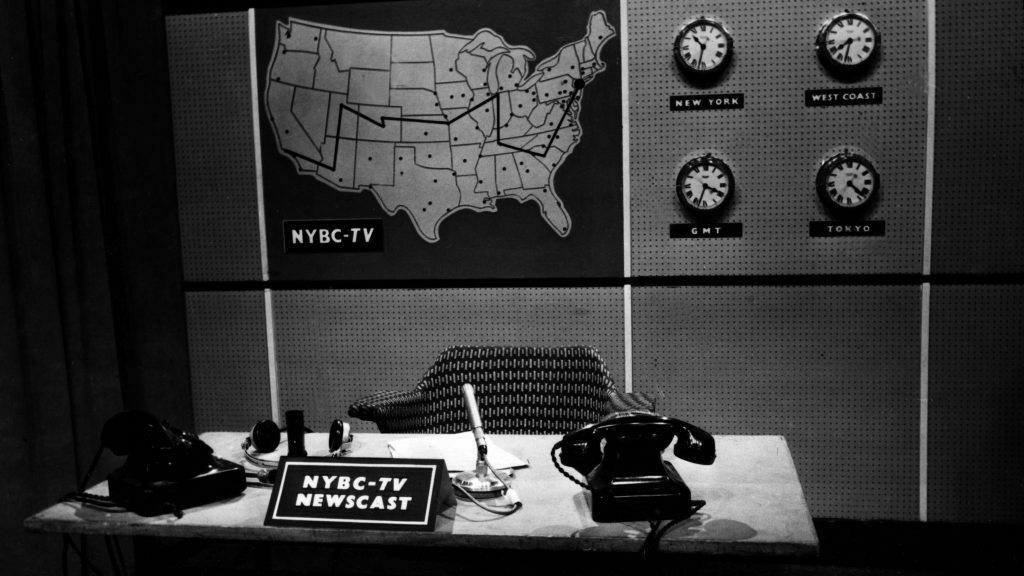
BBC Archive: Empty sets
Give your video calls a makeover, with this selection of over 100 empty sets from the BBC Archive.
Who hasn't wanted to host a pub quiz from the Queen Vic, conduct a job interview from the confines of Fletch's cell, or catch up with friends and family from the bridge of the Liberator in Blake's 7?
I love this idea, to spice up Zoom calls, etc.
People you follow
First I search for my new item of interest, then I filter the results by “People I Follow.” (You can try it out with some of my recent searches: “Roger Angell,” “Captain Beefheart,” and “Rockford Files.”) Depending on the subject, I might have pages and pages of links, all handily selected for me by people I find interesting.
Austin Kleon
In his most recent newsletter, Austin Kleon referenced this post of his from five years ago. I think the idea is a great one and I'll definitely be doing this in future! Twitter move settings around occasionally, but it's still there under 'search filters'.
68 Bits of Unsolicited Advice
Perhaps the most counter-intuitive truth of the universe is that the more you give to others, the more you’ll get. Understanding this is the beginning of wisdom.
Before you are old, attend as many funerals as you can bear, and listen. Nobody talks about the departed’s achievements. The only thing people will remember is what kind of person you were while you were achieving.
Over the long term, the future is decided by optimists. To be an optimist you don’t have to ignore all the many problems we create; you just have to imagine improving our capacity to solve problems.
Kevin Kelly (The Technium)
The venerable KK is now 68 years of age and so has dispensed some wisdom. It's a mixed bag, but I particularly liked these the three bits of advice I've quoted above.
Header image by Ben Jennings.
Saturday scramblings
I've spent a lot more time on Twitter recently, where my feed seems to be equal parts anger and indignation (especially at Andrew Adonis) on the one hand, and jokes, funny anecdotes, and re-posted TikToks on the other.
In amongst all of that, and via Other Sources™, I've also found the following, some of which I think will resonate with you. Let me know on Twitter, Mastodon, or in the comments if that's the case!
School Work and Surveillance
So, what happens now that we're all doing school and work from home?
Well, for one thing, schools are going to be under even more pressure to buy surveillance software — to prevent cheating, obviously, but also to fulfill all sorts of regulations and expectations about "compliance." Are students really enrolled? Are they actually taking classes? Are they doing the work? Are they logging into the learning management system? Are they showing up to Zoom? Are they really learning anything? How are they feeling? Are they "at risk"? What are teachers doing? Are they holding class regularly? How quickly do they respond to students' messages in the learning management system?
Audrey Watters (Hack Education)
Good stuff, as always, by Audrey Watters, who has been warning about this stuff for a decade.
We're knee-deep in shit and drinking cups of tea
Of course this government are failing to deal with a pandemic. At the fag end of neoliberalism, they don’t exist to do much more than transfer public assets into private hands. What we’re living through is exactly what would happen if we’d elected a firm of bailiffs to cure polio. That’s not to say that they won’t use this crisis, as they would any other, to advance a profoundly reactionary agenda. The austerity they’ll tell us they need to introduce to pay for this will make the last decade seem like Christmas at Elton John’s house.
There’s an old joke about a guy going to hell. The Devil shows him round all the rooms where people are being tortured in a variety of brutal ways. Eventually, they come to a room where everybody is standing knee-deep in shit and drinking cups of tea. The guy chooses this as the place to spend eternity, and the Devil shouts “Tea break’s over lads, back on your heads!” That, I suppose, is how I feel when I hear people crowing about how the government are being forced to implement socialist policies. Pretty soon, we’ll all be back on our heads.
Frankie Boyle (The Overtake)
As comedy has become more political over the last decade, one of the most biting commentators has been the Scottish comedian Frankie Boyle. I highly recommend following him on Twitter.
Novel adventures: 12 video games for when you’re too restless to read
A few keen readers have turned to essay collections, short stories or diaries, which are less demanding on the memory and attention, but video games may also offer a way back into reading during these difficult times. Here are 12 interesting puzzle and adventure games that play with words, text and narratives in innovative ways, which may well guide you back into a reading frame of mind.
Keith Stuart (The Guardian)
I hadn't heard of any of the games on this list (mobile/console/PC) and I think this is a great idea. Also check out the Family Video Game Database.
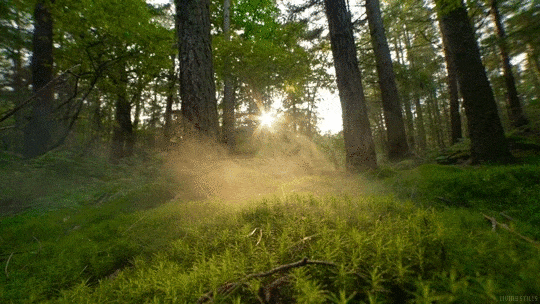
Career advice for people with bad luck
The company is not your family. Some of the people in the company are your friends in the current context. It’s like your dorm in college. Hopefully some of them will still be your friends after. But don’t stay because you’re comfortable.
[...]
When picking a job, yes, your manager matters. But if you have an amazing manager at a shit company you’ll still have a shit time. In some ways, it’ll actually be worse. If they’re good at their job (including retaining you), they’ll keep you at a bad company for too long. And then they’ll leave, because they’re smart and competent.
Chief of Stuff (Chief's newsletter)
Most of this advice is focused on the tech sector, but I wanted to highlight the above, about 'friends' at work and the relative importance of having a good boss.
Are we too busy to enjoy life?
“You cannot step into the same river twice, for other waters are continually flowing on,” supposedly said Heraclitus. Time is like a river. If you’re too busy to enjoy life—too busy to spend time with friends and family, too busy to learn how to paint or play the guitar, too busy to go on that hike, too busy to cook something nice for yourself—these moments will be gone, and you will never get that time back.
You may think it’s too late. It’s not. Like many people, I personally experience time anxiety—the recurring thought that it’s too late to start or accomplish something new—but the reality is you probably still have many years in front of you. Defining what “time well spent” means to you and making space for these moments is one of the greatest gifts you can make to your future self.
Anne-Laure Le Cunff (Ness Labs)
Quality not quantity. Absolutely, and the best way to do that is to be in control of every area of your life, not beholden to someone else's clock.
Labour HQ used Facebook ads to deceive Jeremy Corbyn during election campaign
Labour officials ran a secret operation to deceive Jeremy Corbyn at last year’s general election, micro-targeting Facebook adverts at the leader and his closest aides to convince them the party was running the campaign they demanded.
Campaign chiefs at Labour HQ hoodwinked their own leader because they disapproved of some of Corbyn’s left-wing messages.
They convinced him they were following his campaign plans by spending just £5,000 on adverts solely designed to be seen by Corbyn, his aides and their favourite journalists, while pouring far more money into adverts with a different message for ordinary voters.
Tim Shipman (The Times)
This article by the political editor of The Times is behind a paywall. However, the above is all you need to get the gist of the story, which reminds me of a story about the CEO of AT&T, the mobile phone network.
At a time when AT&T were known for patchy coverage, technicians mapped where the CEO frequently went (home, work, golf club, etc.) and ensured that those locations had full signal. Incredible.

We can’t grow our way out of poverty
Poverty isn’t natural or inevitable. It is an artifact of the very same policies that have been designed to syphon the lion’s share of global income into the pockets of the rich. Poverty is, at base, a problem of distribution.
Jason Hickel (New Internationalist)
There's some amazing data in this article, along with some decent suggestions on how we can make society work for the many, and not just the few. Also see this: wealth shown to scale.
On Letting Go of Certainty in a Story That Never Ends
Possessed of no such capacity for superior force, fairytale characters are given tasks that are often unfair verging on impossible, imposed by the more powerful—climb the glass mountain, sort the heap of mixed grain before morning, gather a feather from the tail of the firebird. They are often mastered by alliances with other overlooked and undervalued players—particularly old women (who often turn out to be possessed of supernatural powers) and small animals, the ants who sort the grain, the bees who find the princess who ate the honey, the birds who sing out warnings. Those tasks and ordeals and quests mirror the difficulty of the task of becoming faced by the young in real life and the powers that most of us have, alliance, persistence, resistance, innovation. Or the power to be kind and the power to listen—to name two powers that pertain to storytelling and to the characters these particular stories tell of.
Rebecca Solnit (Literary Hub)
What was it Einstein said? “If you want your children to be intelligent, read them fairy tales. If you want them to be more intelligent, read them more fairy tales.”
Private gain must no longer be allowed to elbow out the public good
The term ‘commons’ came into widespread use, and is still studied by most college students today, thanks to an essay by a previously little-known American academic, Garrett Hardin, called ‘The Tragedy of the Commons’ (1968). His basic claim: common property such as public land or waterways will be spoiled if left to the use of individuals motivated by self-interest. One problem with his theory, as he later admitted himself: it was mostly wrong.
Our real problem, instead, might be called ‘the tragedy of the private’. From dust bowls in the 1930s to the escalating climate crisis today, from online misinformation to a failing public health infrastructure, it is the insatiable private that often despoils the common goods necessary for our collective survival and prosperity. Who, in this system based on the private, holds accountable the fossil fuel industry for pushing us to the brink of extinction? What happens to the land and mountaintops and oceans forever ravaged by violent extraction for private gain? What will we do when private wealth has finally destroyed our democracy?
Dirk Philipsen (Aeon)
Good to see more pushback on the notion of 'the tragedy of the commons'. What we need to do is, instead of metaphorically allowing everyone to graze their own cows on the common, we need to socialise all the cows.
Saturday sandcastles
The photos of brutalist sandcastles accompanying this week's link roundup made me both smile and really miss care-free walks on the beach. Although technically we're still allowed to visit the coast, our local council has closed nearby car parks.
This week I've been busy, busy, but managed to squeeze in a bit of non-fiction reading, the best of which I'm sharing below. Oh, and one link that I can' really quote is UnblockIt which was shared via our team chat this week. If your ISP filters certain sites, you might want to bookmark it...
There will be no 'back to normal'
In this article, we summarise and synthesise various - often opposing - views about how the world might change. Clearly, these are speculative; no-one knows what the future will look like. But we do know that crises invariably prompt deep and unexpected shifts, so that those anticipating a return to pre-pandemic normality may be shocked to find that many of the previous systems, structures, norms and jobs have disappeared and will not return.
Nesta
I'm going to return to this article time and again, as it breaks down in a really helpful way what's likely to happen post-pandemic in the following areas: political, economic, sociocultural, technological, legal, and environmental.
Plan for 5 years of lockdown
I’m attempting to be pragmatic. I think this is one of those times where we should hope for the best but plan for the worst. Crucially, I think that a terrifying number of people are in denial about the timescales of disruption that Covid-19 will cause, and this is causing them to make horrible personal and professional decisions. I believe that we have a responsibility to consider any reasonably likely worst case scenario, and take appropriate steps to mitigate it. But to do that we have to be honest about the worst case.
Patrick Gleeson
It's hard to disagree with the points made in this post, especially as the scenario planning that universities are doing seems to point in the same direction. Having said that, I don't think 'lockdown' will mean the same thing everywhere and at each stage of the pandemic.
'Will coronavirus change our attitudes to death? Quite the opposite'
For centuries, people used religion as a defence mechanism, believing that they would exist for ever in the afterlife. Now people sometimes switch to using science as an alternative defence mechanism, believing that doctors will always save them, and that they will live for ever in their apartment. We need a balanced approach here. We should trust science to deal with epidemics, but we should still shoulder the burden of dealing with our individual mortality and transience.
The present crisis might indeed make many individuals more aware of the impermanent nature of human life and human achievements. Nevertheless, our modern civilisation as a whole will most probably go in the opposite direction. Reminded of its fragility, it will react by building stronger defences. When the present crisis is over, I don’t expect we will see a significant increase in the budgets of philosophy departments. But I bet we will see a massive increase in the budgets of medical schools and healthcare systems.
Yuval Noah Harari
Some amazing writing, as ever, by Harari, who argues that, because our secular societies focus on the here and now rather than the afterlife, science has almost become a religion.

A startup debt to talk about more: emotional debt
We incur emotional debt whenever there’s an experience we’ve had, but not fully digested in all aspects of it. In my trauma therapy training I learned that this is in fact a natural and important human survival skill. Imagine you’re living in a pre-historic village and it gets raided by a neighboring tribe. Although no one gets killed, a number of houses have been burned down and food has been stolen. The next morning the most important tasks for everyone are to protect the village again, rebuild the houses and hunt for food to survive. Many of the villagers will have been deeply traumatized from the fears and terror they experienced in their bodies. Since food and shelter takes first priority to humans, not processing these emotions for now is a debt that’s necessary and important to incur. We can put it aside and leave it stuck in our bodies, ready to reengage and digest it later. It’s a great survival feature if you will.
A couple of weeks later when everything has been rebuilt, there might be a chance for the local shaman to offer a ritual around the fireplace where everyone can gather and re-experience the emotions that were too difficult to deal with at the actual event of the raid: the rage and anger towards the attackers, the fear and the terror over their lives and eventually the grief for the loss of their goods and most importantly their safety. Once that has been felt and integrated, everyone is able to move on and the night of the village raid can safely go into the history books, fairy tales and heroes journey accounts that luckily everyone survived, yet learned from.
Leo Widrich
While this is framed in terms of startups, I think every organisation has 'emotional debt' that they have to deal with. I like this framing, and will be using it from now on to explain why teams need times of compression and decompression (instead of never-ending 'sprints').
Don’t let remote leadership bring out the worst in you
Recognize that the pressure you apply is a reaction to a construct of control. You think you can control people – and things – and the reality is you can’t. The quicker you can realize this, the sooner you can shift to a frame of mind where you can focus constructively on the things that actually help your team, such as: (1) Making it clear why the work matters (2) Creating milestones to help that person achieve that work (3) Giving as much context as possible so they can make the best decisions (4) Helping them think through tough problems they encounter.
Claire Lew
I've led a remote team for a couple of years now, and worked remotely for six years before that. Despite this, it's easy to fall into bad habits, so this is a useful article to remind all leaders (most of whom are remote now!) that the amount of time someone spends on something does not equate to progress made.
Google Apple Contact Tracing (GACT): a wolf in sheep’s clothes.
But the bigger picture is this: it creates a platform for contact tracing that works all across the globe for most modern smart phones (Android Marshmallow and up, and iOS 13 capable devices) across both OS platforms. Unless appropriate safeguards are in place (including, but not limited to, the design of the system as described above – we will discuss this more below) this would create a global mass-surveillance system that would reliably track who has been in contact with whom, at what time and for how long. (And where, if GPS is used to record the location.) GACT works much more reliably and extensively than any other system based on either GPS or mobile phone location data (based on cell towers) would be able to (under normal conditions). I want to stress this point because some people have responded to this threat saying that this is something companies like Google (using their GPS and WiFi names based location history tool) can already do for years. This is not the case. This type of contact tracing really brings it to another level.
Jaap-Henk Hoepman
This, by a professor in the Netherlands who focuses on 'privacy by design' is why I'm really concerned about the Google/Apple Contact Tracing (GACT) programme. It's only likely to be of marginal help in fighting the virus, but sets up a global surveillance network for decades to come.

In this Zombie Apocalypse, your Homework is due at 5pm
Year in and year out, when school’s in, children know that they are to be at certain places at certain times, doing particular tasks in particular ways. And now, weeks loom ahead where they are faced with many of the same tasks, absent of all the pomp and circumstance. This is the ultimate zombie apocalypse nightmare—a pandemic has hit the world with a mighty force, schools and tuition centers are shut, and homework is still due. Children are adaptable creatures, but it will be challenging for many, if not most, to do all that they are expected to do under these altered conditions.
Youyenn Teo
I was attracted to this article by its great title, but it's actually an interesting insight into both education in a Singaporean context and the gendered nature of care in our societies.
Free Money for Surfers: A Genealogy of the Idea of Universal Basic Income
As cash transfers are increasingly seen as the ideal way to confront the magnitude of the coronavirus threat, it is unclear whether our political imagination is truly up to the task. The current crisis might accelerate rather than decrease our dependency on the market, strengthening capital’s grip on society. Large-scale public works are evidently unfeasible with physical distancing. But, with a clear medical equipment shortage and lacking trained personnel, there is obvious space for public planning responses, and “production for use value” seems ever more necessary. None of these ills will be solved by cash transfers.
Anton Jäger & Daniel Zamora
This, in the Los Angeles Review of Books, considers a new work by Peter Sloman entitled The Idea of a Guaranteed Income and the Politics of Redistribution in Modern Britain. Having previously been cautiously optimistic about Universal Basic Income (or 'cash transfers') I'm not so sure it would all work out so well. I'd rather we funded things like the NHS, but then that might be my white male privilege speaking.
How we made the Keep Calm and Carry On poster
I first found the poster in 2000, folded up at the bottom of a box of books we had bought at an auction. I liked it straight away and showed it to my wife Mary – she had it framed and put up in the shop. The next thing we found was that customers wanted to buy it. I suggested we make copies but Mary said: “No, it’ll spoil the purity.” She went away for a week’s holiday, so I secretly got 500 copies made.
Stuart Manley (interviewed by malcolm jack)
This ridiculously-famous poster was discovered in a wonderful second-hand bookshop not too far away from us, and which we visit several times per year. I love the story behind it.
Images via The Guardian: For one tide only: modernist sandcastles – in pictures




